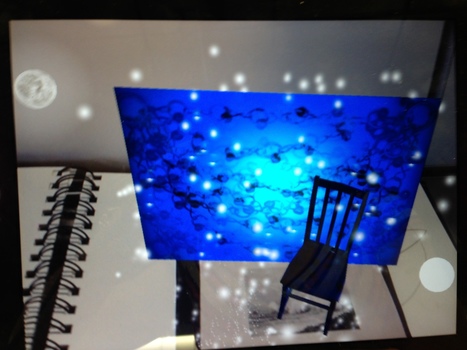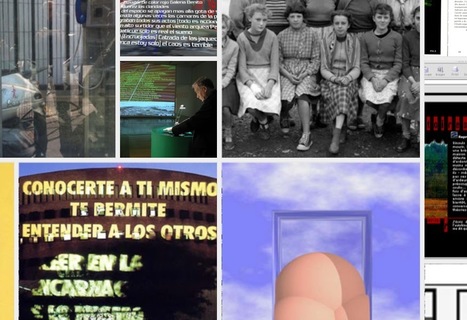blog sur la e-littérature contient des articles sur les installations, la génération automatique de texte et la littérature interactive.
Jean-Pierre Balpe est directeur du département hypermédias et du laboratoire Paragraphe de l'Université de Paris 8. Il est également secrétaire général de la revue Action poétique. Chercheur, théoricien de la littérature informatique, auteur de divers ouvrages scientifiques et techniques (dernier ouvrage paru: Contextes de l'art numérique, Hermès, 2000), écrivain, après avoir très longtemps écrit des poèmes et nouvelles publiés dans diverses revues, il s'intéresse dès 1975 aux possibilités que l'informatique offre à l'écriture littéraire. En 1981 il est un des cofondateurs de l'ALAMO (Atelier de littérature assistée par la mathématique et les ordinateurs) et, à ce titre, conseiller auprès de la BPI (Bibliothèque publique d'information) pour les expositions "Les Immatériaux" et "Mémoires du futur". En 1985 il conçoit pour l'INA (Institut national de l'audiovisuel) et France Télécom le premier scénario de télévision interactive, diffusé alors par Canal +.
Depuis 1989, il réalise des logiciels d'écriture principalement utilisés lors d'expositions ou de manifestations publiques, notamment Un roman inachevé pour le stand du ministère de la Culture au MILIA (Marché international du livre illustré et des nouveaux médias) à Cannes et au MIM (Marché international du multimédia de Montréal) en 1995, Romans (Roman) pour l'exposition "Artifices" de novembre 1996 ou sous forme de spectacles comme Trois mythologies et un poète aveugle, première oeuvre générative collaborant avec un générateur musical. Il a actuellement en chantier un opéra numérique, Barbe-Bleue, résultat de la collaboration de trois générateurs: générateur de texte (le sien), générateur de musique (Alexandre Raskatov) et générateur de scénographie (Michel Jaffrennou). Il est également l'auteur de Trajectoires, un roman génératif en ligne.



 Your new post is loading...
Your new post is loading...




![Jean-Pierre Balpe, inventor of literature [Portrait] | Digital #MediaArt(s) Numérique(s) | Scoop.it](https://img.scoop.it/VZIeGGS0tV9gUIfFaadDvTl72eJkfbmt4t8yenImKBVvK0kTmF0xjctABnaLJIm9)




